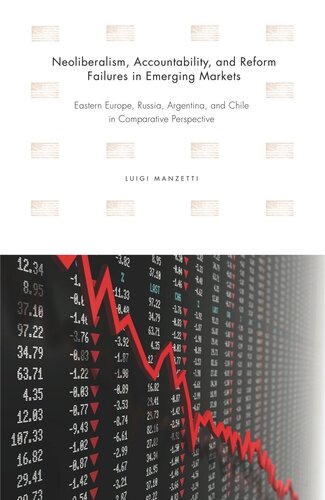

Most ebook files are in PDF format, so you can easily read them using various software such as Foxit Reader or directly on the Google Chrome browser.
Some ebook files are released by publishers in other formats such as .awz, .mobi, .epub, .fb2, etc. You may need to install specific software to read these formats on mobile/PC, such as Calibre.
Please read the tutorial at this link: https://ebookbell.com/faq
We offer FREE conversion to the popular formats you request; however, this may take some time. Therefore, right after payment, please email us, and we will try to provide the service as quickly as possible.
For some exceptional file formats or broken links (if any), please refrain from opening any disputes. Instead, email us first, and we will try to assist within a maximum of 6 hours.
EbookBell Team

0.0
0 reviewsThe agenda of neoliberal market reform known as the Washington Consensus, which was meant to turn around the economies of developing and postcommunist countries and provide the bedrock of economic success on which stable democracies could be built, has largely proved to be a failure, with Russia and many Latin American countries like Argentina left in severe economic crisis by the end of the 1990s.
Some proponents of neoliberal reform, such as Anne Krueger, have attributed this failure to the piecemeal and incomplete implementation of reform measures, while others, including Nobel Prize economist and former World Bank vice president Joseph Stiglitz, have pointed to technical flaws in the policies. While both of these assessments focus narrowly on economic factors, Luigi Manzetti highlights the crucial importance of political institutions and processes to a fully adequate explanation. His argument is that the ideology of neoliberal reform, rooted in the theories of Friedrich von Hayek and Milton Friedman, assumed political checks and balances that did not exist in many of these countries undergoing market reform, and that only by taking political accountability as an influential variable in the equation for success can we really understand what happened. Where accountability was weak, patterns of corruption, collusion, and patronage worked to undermine the intended aims of market reform. Manzetti uses both large N statistical analyses and small N case studies (of Argentina, Chile, and Russia) to provide empirical evidence for his argument.